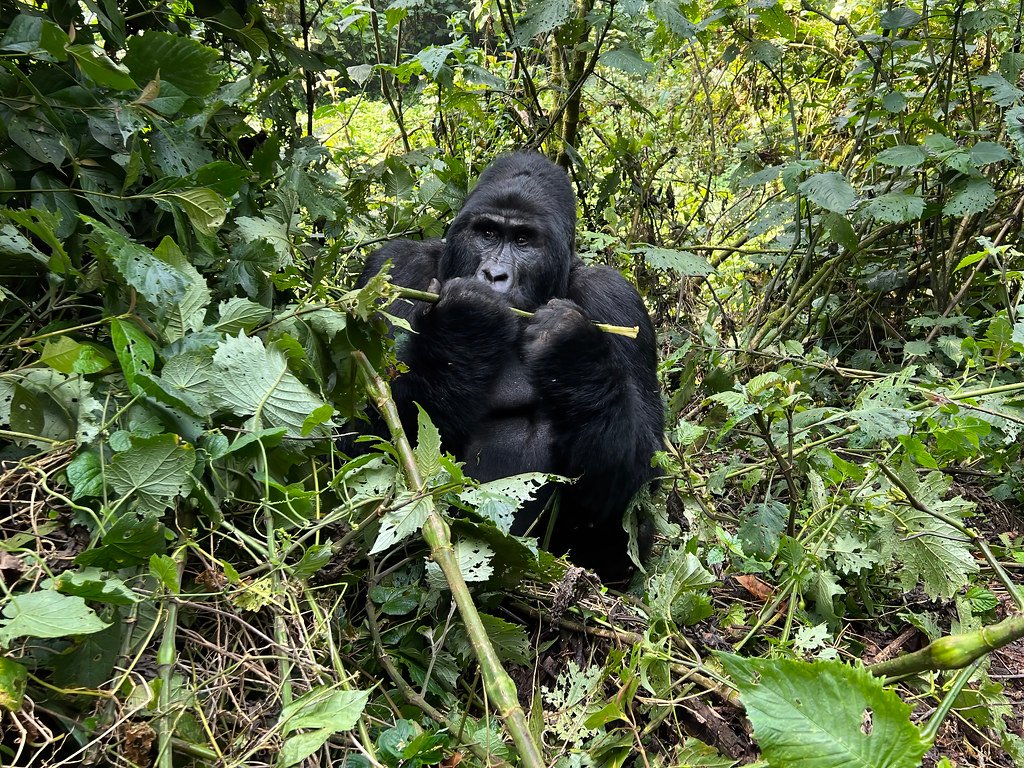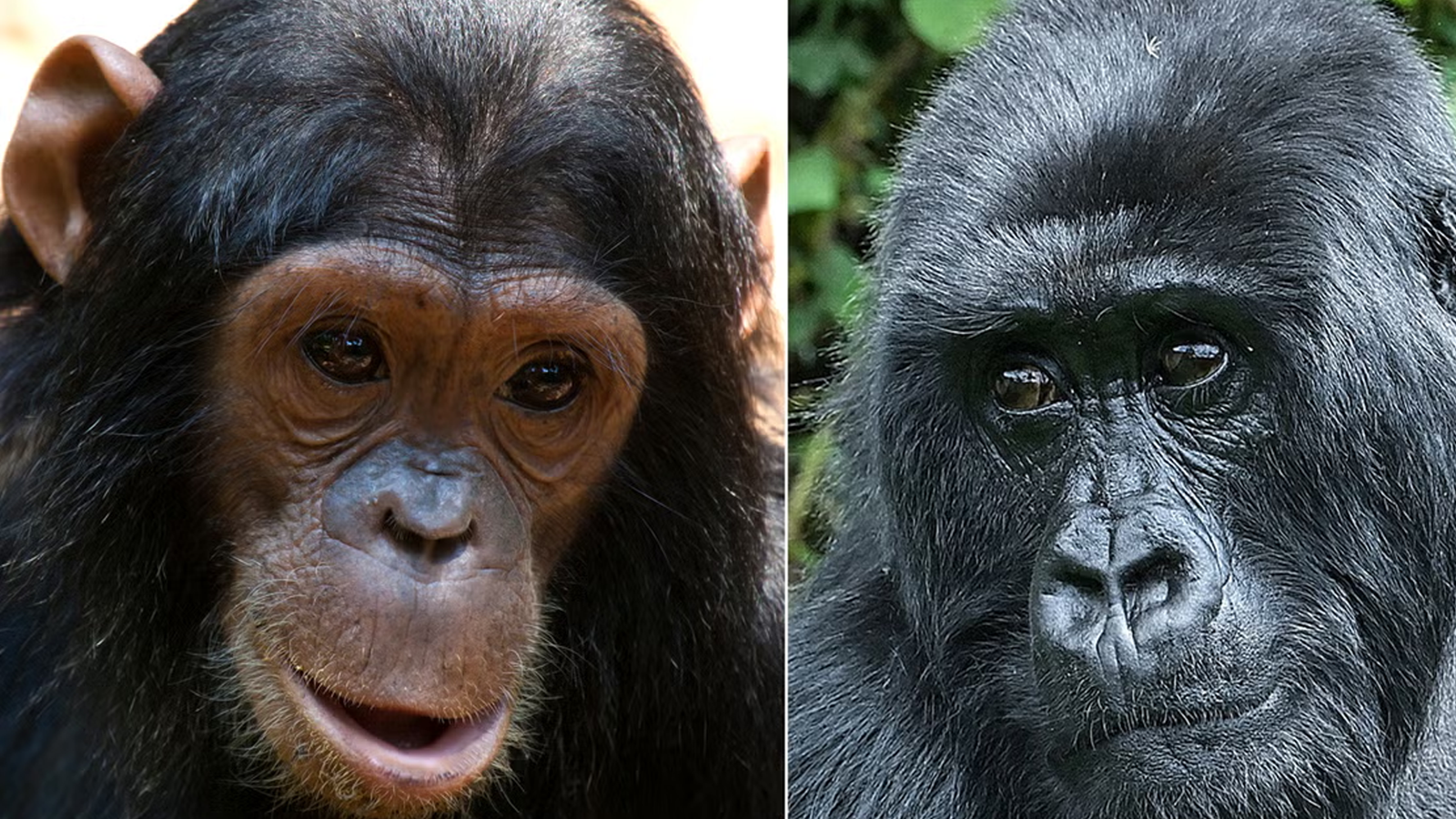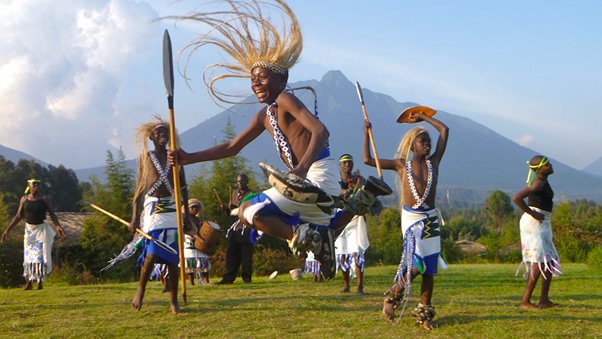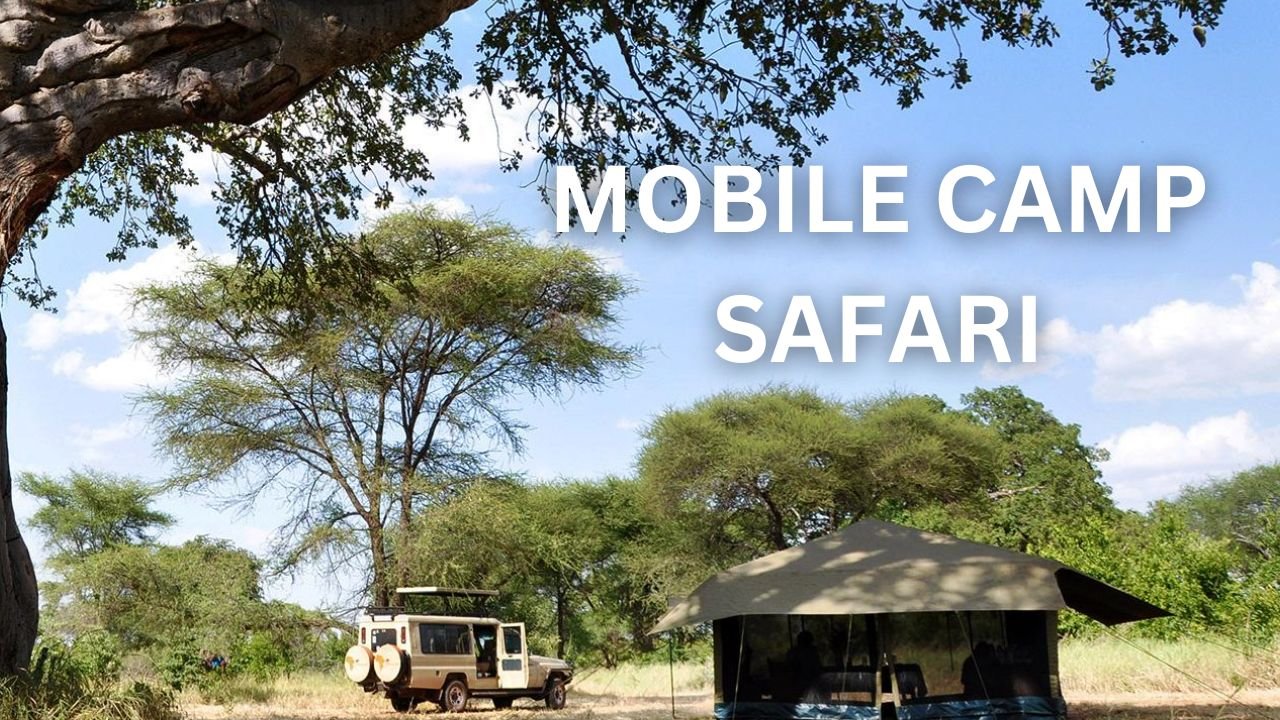Discounted Uganda Gorilla Trekking Prices
Discounted Uganda Gorilla Trekking Prices are the costs incurred during the a rare and remarkable opportunity – the chance to encounter the elusive mountain gorillas in their natural habitat.
Home to more than half of the world’s remaining mountain gorilla population, this lush African nation offers an unparalleled experience for wildlife enthusiasts and nature lovers.
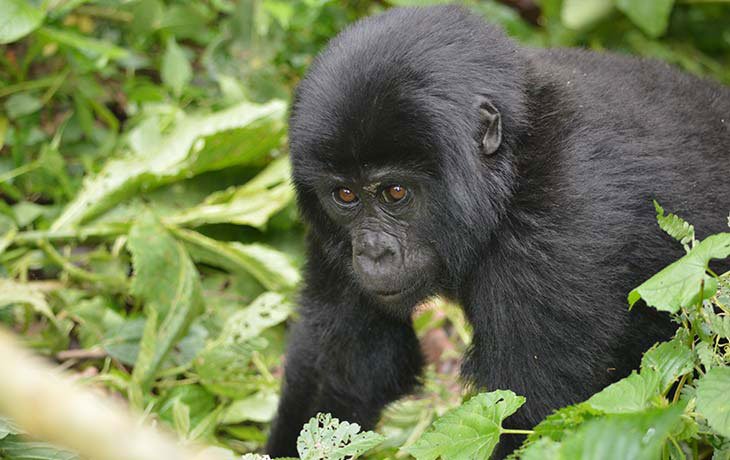
One of the most sought-after eco-tourism adventures in Uganda is gorilla trekking, a journey that brings you face to face with these gentle giants.
As you plan your expedition into the Bwindi Impenetrable Forest or Mgahinga Gorilla National Park, it’s essential to understand the costs involved in this extraordinary wildlife encounter.
In this guide, we delve into the captivating world of Uganda’s gorilla trekking prices, providing insights into permit fees, tour operator packages, accommodation options, and other essential expenses.
Join us on a virtual voyage through the captivating landscapes of Uganda as we unravel the details of this life-changing adventure and help you prepare for an unforgettable encounter with the majestic mountain gorillas.
Gorilla trekking in Uganda typically involved several costs. However, please note that prices may change over time, and it’s essential to check with us or the Uganda Wildlife Authority (UWA) for the most up-to-date information.
Here are some of the costs associated with gorilla trekking in Uganda:
Gorilla Permit Fee:
The primary cost is the gorilla permit fee, which allows you to track gorillas in their natural habitat. As of 2021, the permit fee for foreign non-residents was $700 per person per trek. For foreign residents in East Africa, the fee was $600, and for Ugandan citizens and East African residents, it was significantly lower. These fees may have changed, so verify the current rates.
Tour Operator Fees:
Many visitors book gorilla trekking experiences through tour operators, who provide transportation, guides, and other services. The cost of these tours can vary widely based on the operator and the level of service. Prices may range from a few hundred dollars to over a thousand dollars per person.
Accommodation:
Accommodation options near gorilla trekking sites in Uganda can vary widely in terms of comfort and price. Here are some common types of accommodation you might encounter:
Luxury Lodges: These are high-end accommodations offering luxurious amenities, spacious rooms, fine dining, and often beautiful views of the surrounding natural scenery. Expect to pay a premium for this level of comfort.
Mid-Range Lodges or Tented Camps: These accommodations offer comfortable rooms or tents with essential amenities. They are a good balance between comfort and cost.
Budget Lodges or Guesthouses: If you’re on a tighter budget, you can find more affordable lodges or guesthouses. These may have basic amenities but provide a place to sleep and dine.
Camping: Some gorilla trekking tours offer camping experiences. This can be a more budget-friendly option, but it’s important to check the availability and quality of camping facilities.
Accommodation prices can vary significantly, so it’s essential to research and book your stay in advance, especially during peak gorilla trekking seasons.
Transportation:
Getting to the gorilla trekking location can involve various transportation costs:
Domestic Flights: If you’re traveling to a remote gorilla trekking destination, you may need to book domestic flights within Uganda. Prices can vary depending on the route and airline.
Ground Transportation: For some trekking locations, you might need to hire a vehicle and driver for ground transportation. This can be necessary if you’re traveling from a major city like Entebbe or Kampala to more remote areas.
Park Entry Fees: In addition to the gorilla permit fee, some national parks in Uganda charge entrance fees for foreign visitors. These fees can vary from park to park.
Tips and Miscellaneous Expenses:
When budgeting for your gorilla trekking experience, don’t forget to account for these additional expenses:
- Tips: It’s customary to tip your guides and porters. The recommended tip amount can vary, but it’s generally a good practice to ask your tour operator or guide for guidance on tipping.
- Meals: Depending on your chosen accommodation package, some or all of your meals may be included. However, you should budget for meals not covered by your lodging.
- Souvenirs: If you plan to purchase souvenirs or local crafts during your trip, allocate some funds for shopping.
Travel Insurance:
Travel insurance is a type of insurance policy designed to provide financial protection and assistance to travellers in case of unexpected events or emergencies while they are away from their home country. It’s essential for travellers to have adequate travel insurance coverage to mitigate risks and ensure peace of mind during their trips. Here’s an elaboration on the key aspects of travel insurance:
- Trip Cancellation/Interruption: This coverage helps you recover your non-refundable travel expenses if you need to cancel or cut short your trip due to covered reasons, such as illness, injury, death of a family member, or unexpected events like natural disasters.
- Medical Coverage: This covers the cost of medical treatment and emergency medical evacuation if you get sick or injured during your trip. It’s crucial, especially when traveling to countries where healthcare can be expensive for foreigners.
- Trip Delay: If your trip is delayed due to reasons beyond your control (e.g., airline strikes, weather-related issues), travel insurance can reimburse you for additional expenses like accommodation, meals, and transportation.
- Lost or Delayed Baggage: If your luggage is lost, stolen, or delayed by the airline or travel provider, travel insurance can provide coverage for the replacement of essential items or reimbursement for the value of your belongings.
- Emergency Evacuation: In case of a severe medical emergency, travel insurance can cover the cost of emergency evacuation to the nearest suitable medical facility or your home country.
- Personal Liability: This coverage protects you in case you accidentally cause injury to someone or damage their property during your trip, and you are legally liable for the damages.
- Travel Assistance Services: Most travel insurance policies offer 24/7 assistance services, which can help you with various travel-related emergencies, such as finding medical facilities, replacing lost passports, or arranging transportation home in case of an emergency.
- Coverage Options: Travel insurance policies come in various forms, including single-trip coverage, multi-trip coverage (covering multiple trips within a specified period), and specialized policies for specific types of travel, such as adventure or cruise travel.
- Pre-Existing Conditions: It’s crucial to disclose any pre-existing medical conditions when purchasing travel insurance. Some policies may offer coverage for pre-existing conditions, while others may exclude them.
- Coverage Limits and Deductibles: Travel insurance policies often have coverage limits for various benefits, and they may require you to pay a deductible (out-of-pocket expense) before the insurance coverage kicks in. Be sure to understand these limits and deductibles.
- Policy Exclusions: Travel insurance policies may have exclusions, such as coverage for high-risk activities, acts of terrorism, or pandemics. It’s essential to read and understand the policy exclusions before purchasing.
- Cost: The cost of travel insurance varies depending on several factors, including the duration of your trip, the level of coverage, your age, and your destination. It’s advisable to compare quotes from different insurance providers to find a policy that suits your needs and budget.
Before purchasing travel insurance, carefully review the policy terms and conditions, and consider your specific travel needs and potential risks. Choose a reputable insurance provider and ensure that you have the coverage necessary to protect yourself during your travels.
Visa Fees:
Depending on your nationality, you may require a visa to enter Uganda. Visa fees can vary based on your country of origin and the type of visa you need (e.g., tourist visa, business visa, transit visa). It’s essential to check the current visa requirements and fees for Uganda through the official Ugandan embassy or consulate website or contact the embassy directly.
Remember that it’s crucial to plan and budget for all these aspects before your gorilla trekking adventure in Uganda to ensure a smooth and enjoyable experience. Additionally, the costs associated with each aspect can vary based on your preferences and the specific tour package you choose.
Remember that gorilla trekking permits are limited, and it’s essential to book your permit well in advance, especially during the high season (June to September and December to February). Additionally, regulations and prices may have changed since my last update, so be sure to check with the Uganda Wildlife Authority or with usfor the most current information on gorilla trekking prices and availability.
